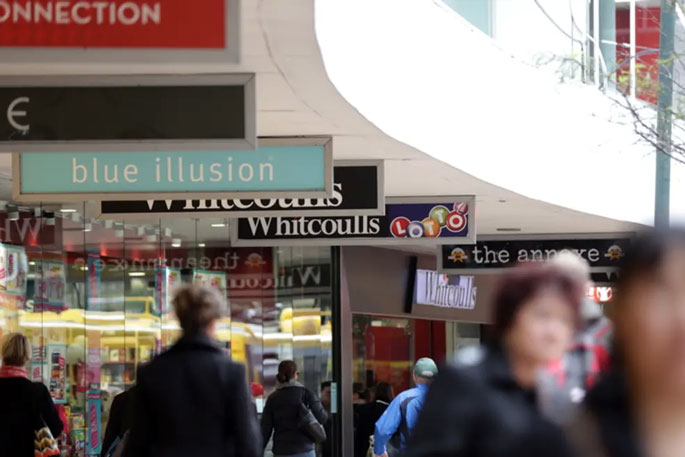New Zealanders are giving up spending at a rate that surpasses the downturn of the global financial crisis (GFC), and is close to passing that of the 1980s sharemarket crash, as well as the tough times of the 1970s.
Data released from Worldline on Wednesday shows June was an "especially quiet" month for retailers.
Spending was down 2.3 per cent compared to the same month last year, despite population growth.
"June is typically the slowest month of the year but the first two weeks of June this year were also noticeably slower than last year. That made for quiet trading," says chief sales officer Bruce Proffit.
"However, there's at least some pick-up on June last year in the last few days of the month, although the level remain of activity remains low overall."
Infometrics chief forecaster Gareth Kiernan says there has been a 12.6 per cent decline in quarterly sales volumes per capita, seasonally adjusted, in the Stats NZ retail trade survey since the peak in June 2021.
That is more than the 10.3 per cent peak-to-trough fall during the global financial crisis.
On an annual running total basis, spending is down 8.5 per cent from the most recent peak.
Gareth says if quarterly sales data plateaus at current levels through the rest of the year, which seems optimistic at this stage, the decline from peak should come in at 9.9 per cent.
That compared to a decline in annual per-capita sales volumes of 10 per cent between March 1977 and September 1978 and another decline between June 1987 and December 1991 of 10.1 per cent.
By comparison, the decline during the GFC on that basis is 8.5 per cent.
"In short, it's surpassing the GFC in terms of the contraction in per capita spend, and is close to going past the late-1980s share market crash / economic reforms / global recession, as well as the economic malaise of the mid-late 1970s," says Gareth.
It is having a sharp impact on retailers - Centrix data shows the rate of liquidation of retail businesses is up 44 per cent year-on-year, the biggest increase of any business category the credit company tracks.
Chris Wilkinson, of First Retail Group, says constrained spending and a drop in the number of people visiting shops is being felt widely by retailers across the country.
"Job security, the high cost of living and declining asset values are all weighing on people's minds which has shifting spending from wants to needs."
He says retailers will be hoping that things will stabilise as interest rates lift, and if the country can remain technically out of recession.
Retail NZ chief executive Carolyn Young says it's "super tough" for retailers.
She points to Westpac data showing consumer confidence levels down to rates seen in the 1987 crash. "If you look at the period of time, we've been down for quite a long time, we're still hanging down there."
She says Wellington is particularly affected by government job cuts, and the flow-on effects to other businesses.
Even hearing about redundancies is enough to dent confidence and make people think twice about spending, she says.
Carolyn says while there might be some relief as interest rates fall towards the end of this year and into next, the process will be slow because households will only feel the impact as they refix their mortgages.
Carolyn says, to help businesses hold on, it will be useful to know what measures the government has planned.
Things such as changing the sick leave rules will help ease the pressure on businesses, or simplifying the Holidays Act.
"While the government doesn't have any money they have other levers they can use to remove red tape."



0 comments
Leave a Comment
You must be logged in to make a comment.